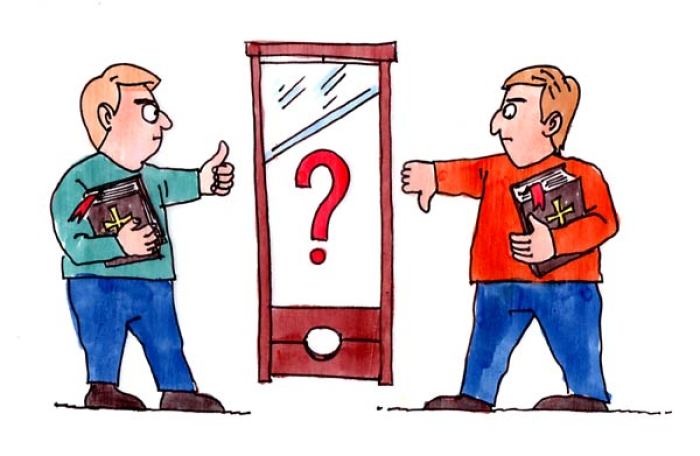Christians and the Death Penalty: Views On Both Sides

On April 29, 2014, the state of Oklahoma attempted to execute Clayton Lockett, who pleaded guilty in 2000 to kidnapping, beating up and shooting 19-year-old Stephanie Neiman, before burying her alive. Lockett's execution commenced at 6:23 p.m. when he was injected with a drug cocktail. Thirty-three minutes after he first received the toxins, the process was halted. At 7:06 p.m. Lockett was declared dead after he went into cardiac arrest. Documents later revealed that there was an insufficient amount of drugs to finish the execution. A second execution scheduled later that night was put on hold.
Lockett's botched execution has once again resumed a long-running national debate over the morality of the death penalty. A practice implemented by British colonists who originally called for hangings for petty thieves and Benedict Arnolds alike, Michigan became the first state to place restrictions on the death penalty in 1846. Many states soon followed its lead and included their own restrictions for which crimes fell under capital punishment.
While the death penalty has long had its detractors, as technology has created new ways of taking the lives of perpetrators, such as the invention of the electric chair, later the gas chamber, and most recently lethal injection, increased support has often followed. Today, nearly four decades after the death penalty was reinstated, a 2013 Gallup poll suggests that 60 percent of Americans currently support the death penalty for convicted murderers. (This figure is the lowest number in more than 40 years; the high came in 1994 when 80 percent of respondents answered in the affirmative.)
Though the majority of Americans find capital punishment acceptable, Evangelicals and conservative Christians share little consensus on the issue and even some of its defenders are willing to acknowledge that the process may be less than ideal.
Read more at http://www.christianpost.com/news/should-christians-support-the-death-penalty-119481/





























